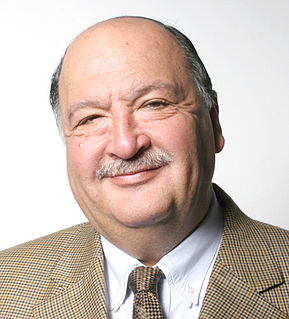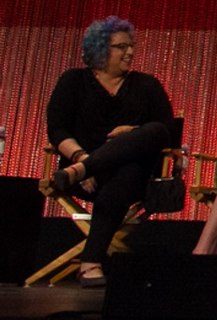A Quote by Fernando Flores
I never told a victim story about my imprisonment. Instead, I told a transformation story - about how prison changed my outlook, about how I saw that communication, truth, and trust are at the heart of power.
Related Quotes
[Eugene Smith] was always writing these diatribes about truth, and how he wanted to tell the truth, the truth, the truth. It was a real rebel position. It was kind of like a teenager's position: why can't things be like they should be? Why can't I do what I want? I latched on to that philosophy. One day I snapped, hey, you know, I know a story that no one's ever told, never seen, and I've lived it. It's my own story and my friends' story.
I was thinking about framing, and how so much of what we think about our lives and our personal histories revolves around how we frame it. The lens we see it through, or the way we tell our own stories. We mythologize ourselves. So I was thinking about Persephone's story, and how different it would be if you told it only from the perspective of Hades. Same story, but it would probably be unrecognizable. Demeter's would be about loss and devastation. Hades's would be about love.
Have you noticed how the Republicans and Democrats try to copy each other at their conventions. Like at the Democratic convention John Kerry's daughter told a story about how he once gave CPR to her hamster. At the Republican convention the Bush girls are going to tell a story about how when their hamster was bad, their dad built them a little electric chair.
I read the story and reread the story, but I still could not find the universality that the little Irishman had spoken of. All I saw in the story was some Irishmen meeting in a room and talking politics. What had that to do with America, especially with my people? It was not until years later that I saw what he meant ... I began to listen, to listen closely to how they talked about their heroes, to how they talked about the dead and how great the dead had once been. I heard it everywhere.
How often do we tell our own life story? How often do we adjust, embellish, make sly cuts? And the longer life goes on, the fewer are those around to challenge our account, to remind us that our life is not our life, merely the story we have told about our life. Told to others, but — mainly — to ourselves.
A story must be told in such a way that it constitutes help in itself. My grandfather was lame. Once they asked him to tell a story about his teacher. And he related how the holy Baal Shem used to hop and dance while he prayed. My grandfather rose as he spoke, and he was so swept away by his story that he himself began to hop and dance to show how the master had done. From that hour he was cured of his lameness. That's how to tell a story.
Each of us is comprised of stories, stories not only about ourselves but stories about ancestors we never knew and people we've never met. We have stories we love to tell and stories we have never told anyone. The extent to which others know us is determined by the stories we choose to share. We extend a deep trust to someone when we say, "I'm going to tell you something I've never told anyone." Sharing stories creates trust because through stories we come to a recognition of how much we have in common.
Too many writers think that all you need to do is write well-but that's only part of what a good book is. Above all, a good book tells a good story. Focus on the story first. Ask yourself, 'Will other people find this story so interesting that they will tell others about it?' Remember: A bestselling book usually follows a simple rule, 'It's a wonderful story, wonderfully told'; not, 'It's a wonderfully told story.'


































